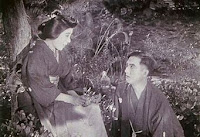.
Vintage American-Asian actors have played a significant role in the history of Hollywood, often overcoming substantial challenges related to stereotypes, racism, and limited opportunities. Some talented individuals from the golden era of cinema have unfortunately faded into obscurity, but their contributions remain vital in shaping the landscape of representation in film. Here are a few forgotten or lesser-known actors worth remembering:1. Anna May Wong (1905–1961)
The first Chinese-American movie star in Hollywood.
Shanghai Express (1932).
Despite her fame, Wong faced persistent typecasting as the exotic "other" or villain and was often denied leading roles due to anti-miscegenation laws that prevented on-screen interracial romance. She paved the way for future Asian-American actors and is now recognized as a cultural icon.
2. Sessue Hayakawa (1886–1973)
A Japanese-American silent film star and one of the first actors of Asian descent to achieve international stardom.
The Cheat (1915),
The Bridge on the River Kwai (1957).
Hayakawa was known for his leading man status during the silent era, a rarity for Asian actors of his time. Legacy: While his popularity declined due to the rise of anti-Asian sentiment in the early 20th century, his work remains a testament to his talent.
3. Philip Ahn (1905–1978)
A Korean-American actor who often portrayed wise, older Asian characters.
The Keys of the Kingdom (1944),
Kung Fu (TV series, 1972–1975).
Ahn appeared in over 70 films and television shows, breaking barriers for Korean-Americans in Hollywood. Despite being pigeonholed into certain roles, he was a trailblazer in representing Korean heritage in American media.
4. Keye Luke (1904–1991)
Known as the first Asian actor to play a positive, recurring role in a major Hollywood franchise.
Charlie Chan series (as "Number One Son"),1936
Gremlins (1984).
Luke also had a successful career as a voice actor and painter. Legacy: His roles often avoided villainous stereotypes, presenting Asians in a more positive light.
5. Tsuru Aoki (1892–1961)
A Japanese-American actress and one of the first Asian women to star in American films.
The Wrath of the Gods (1914),
The Dragon Painter (1919)
Married to Sessue Hayakawa, Aoki starred alongside him in several films, bringing visibility to Asian women in early Hollywood. Legacy: Aoki’s work remains a cornerstone for Asian actresses in Western cinema.
6. Willie Fung (1896–1945)
A Chinese-American character actor who appeared in over 125 films.
The Good Earth (1937),
China (1943).
Fung often portrayed cooks, servants, or laborers, reflecting the era's limitations on Asian representation. Legacy: While his roles were limited by stereotypes, his prolific career highlights the presence of Asian actors in Hollywood’s early years.
7. Richard Loo (1903–1983)
Often cast as villains, Loo was one of the most recognizable Asian-American character actors in Hollywood during World War II.
The Purple Heart (1944),
The Keys of the Kingdom (1944).
Despite being typecast, Loo's performances added depth to his characters, showcasing his range and acting prowess.
Forgotten Contributions and the Need for Rediscovery
These actors laid the groundwork for diversity in Hollywood. Their struggles with stereotypes and racism reflected the social climate of their time but also highlighted their resilience and talent. Modern efforts to recognize their legacies are part of a broader movement to acknowledge underrepresented voices in cinematic history.....
BJ 🙈🙉🙊🥢









